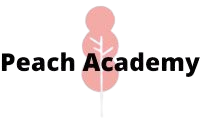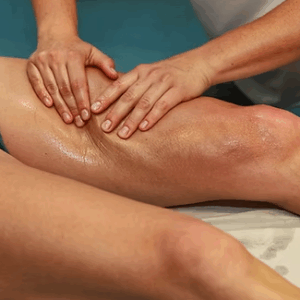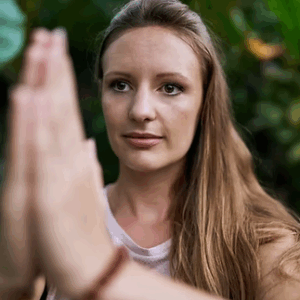Description
Program Description:
The Associate Degree in Alternative Physical Therapies is a two-year program designed to equip students with foundational knowledge and practical skills in non-conventional therapeutic practices that promote physical healing, wellness, and holistic health. Students explore a variety of alternative approaches such as massage therapy, acupuncture theory, reflexology, hydrotherapy, aromatherapy, yoga therapy, and energy healing modalities. Upon completion, graduates are prepared for entry-level positions in wellness centers, rehabilitation facilities, spas, or private practice, or to pursue further study in holistic health or physical therapy.
🎯 Program Learning Outcomes:
Graduates of this program will be able to:
-
Understand the philosophy and history behind various alternative therapies.
-
Apply therapeutic techniques to manage pain, improve mobility, and promote wellness.
-
Recognize contraindications and safety procedures in alternative treatments.
-
Communicate effectively with clients about treatment plans and wellness strategies.
-
Integrate holistic practices into individualized client care.
-
Demonstrate professionalism, ethical behavior, and client-centered care.
⏳ Program Duration:
-
2 years (4 semesters)
-
60–66 credit hours
📚 Core Curriculum Overview:
| Semester | Course Title | Credits |
|---|---|---|
| 1 | Introduction to Alternative Physical Therapies | 3 |
| 1 | Anatomy & Physiology I | 4 |
| 1 | Foundations of Massage Therapy | 3 |
| 1 | Holistic Health & Wellness | 3 |
| 2 | Anatomy & Physiology II | 4 |
| 2 | Reflexology and Zone Therapy | 3 |
| 2 | Aromatherapy and Essential Oils | 3 |
| 2 | Energy Healing (Reiki, Polarity, etc.) | 3 |
| 3 | Yoga & Movement Therapy | 3 |
| 3 | Hydrotherapy Techniques | 3 |
| 3 | Acupressure and Eastern Therapy Theory | 3 |
| 3 | Ethics & Client Communication | 3 |
| 4 | Integrative Therapy Planning | 3 |
| 4 | Practicum / Internship | 4 |
| 4 | Business Skills for Wellness Practitioners | 3 |
🗂️ Course Descriptions and Module Syllabi
📘 1. Introduction to Alternative Physical Therapies
Credits: 3
Course Description:
Introduces the history, principles, and philosophies of alternative physical therapies. Covers the scope of practice, ethical considerations, and comparative perspectives with conventional medicine.
📘 2. Anatomy & Physiology I
Credits: 4
Course Description:
Focuses on the structure and function of the human body, including skeletal, muscular, integumentary, and nervous systems.
📘 3. Foundations of Massage Therapy
Credits: 3
Course Description:
Provides theoretical background and hands-on instruction in basic massage therapy techniques, contraindications, and therapeutic benefits.
📘 4. Holistic Health & Wellness
Credits: 3
Course Description:
Explores the multidimensional nature of wellness, including physical, emotional, mental, and spiritual aspects, and how lifestyle choices impact well-being.
📘 5. Reflexology and Zone Therapy
Credits: 3
Course Description:
Covers reflex maps of the feet, hands, and ears. Emphasizes pressure techniques and the body’s energetic pathways.
📘 6. Aromatherapy and Essential Oils
Credits: 3
Course Description:
Studies the therapeutic uses of essential oils in physical and emotional healing. Discusses blending techniques, safety, and delivery methods.
📘 7. Energy Healing Modalities
Credits: 3
Course Description:
Introduces subtle energy systems such as chakras, meridians, and auras. Students learn basic principles of Reiki, polarity therapy, and energy balance techniques.
Modules:
-
Human Energy Fields and Biofields
-
Chakra System and Energetic Flow
-
Reiki Level I Principles and Techniques
-
Hands-On Energy Assessment
-
Client-Centered Energy Healing Sessions
📘 8. Yoga and Movement Therapy
Credits: 3
Course Description:
Examines the role of movement in healing. Incorporates yoga, tai chi, and somatic techniques for pain relief, posture correction, and mindfulness.
Modules:
-
Therapeutic Principles of Yoga
-
Movement and Postural Alignment
-
Breathwork and Mindful Motion
-
Yoga for Common Physical Conditions
-
Adaptations for Special Populations
📘 9. Hydrotherapy Techniques
Credits: 3
Course Description:
Explores the use of water in therapy through contrast baths, steam therapy, wraps, and aquatic exercises.
Modules:
-
History and Benefits of Hydrotherapy
-
Water Temperature and Physiological Effects
-
Steam, Sauna, and Wrap Techniques
-
Contrast Hydrotherapy and Pain Relief
-
Hydrotherapy for Rehabilitation
📘 10. Acupressure and Eastern Therapy Theory
Credits: 3
Course Description:
An introduction to Traditional Chinese Medicine concepts, including qi, meridians, and five elements. Hands-on practice in acupressure points.
📘 11. Ethics & Client Communication
Credits: 3
Course Description:
Teaches students how to establish therapeutic relationships, uphold client confidentiality, and navigate professional boundaries.
📘 12. Integrative Therapy Planning
Credits: 3
Course Description:
Students learn how to design customized wellness plans that blend multiple modalities to meet client needs.






Reviews
There are no reviews yet.